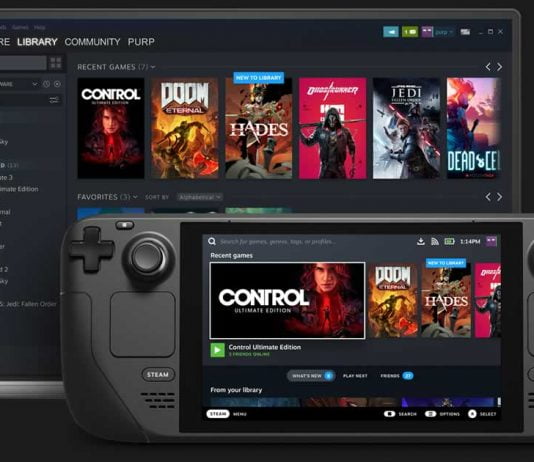Valve has confirmed that it is working with AMD to make the Steam Deck fully compatible with Windows 11 — good news for those who do not want to limit themselves to SteamOS, the operating system that will be offered by default with the handheld console.
This was announced by a Valve Steam Deck designer, Greg Coomer, in an interview with PC Gamer. Now Steam Deck support the current version of Windows 10, and questions remain as to the true compatibility with Windows 11 and its complex hardware requirements like TPM 2.0.
“There’s work looking at TPM just now,” Coomer said, referring to the controversial security chip that is mandatory in Windows 11. He also added that they are in discussion with AMD to make sure the Steam Deck is compatible with the aforementioned BIOS-level component. He added, “there’s nothing to indicate to us yet that there’ll be any issues with Windows 11.”
Valve has to make the Windows 11 compatibility adjustments directly with AMD. This is because the TMP required by the new operating system communicates directly with the processor. The Steam Deck features a custom AMD Zen 2 CPU.
The current support of Windows 10 on Steam Deck opens the door to games that are not compatible with SteamOS 3.0. And, as if this were not enough, the possibility of using Xbox Game Pass or titles from the Epic Games Store.
While the default operating system, Steam OS 3.0, is a Linux-based solution that uses Proton to run games created for Windows. This does present some challenges — compatibility with all titles included in the Steam catalog, including the very popular Apex Legends, Destiny 2, PUBG, Fortnite and Gears 5.
Compatibility issues in Proton revolve around the “anti-cheat” system. This protects players from cheating that can negatively affect the multiplayer experience. To resolve the issue, Valve is working around the clock with BattlEye and Easy Anti-Cheat to get support ready before the Steam Deck launch.
